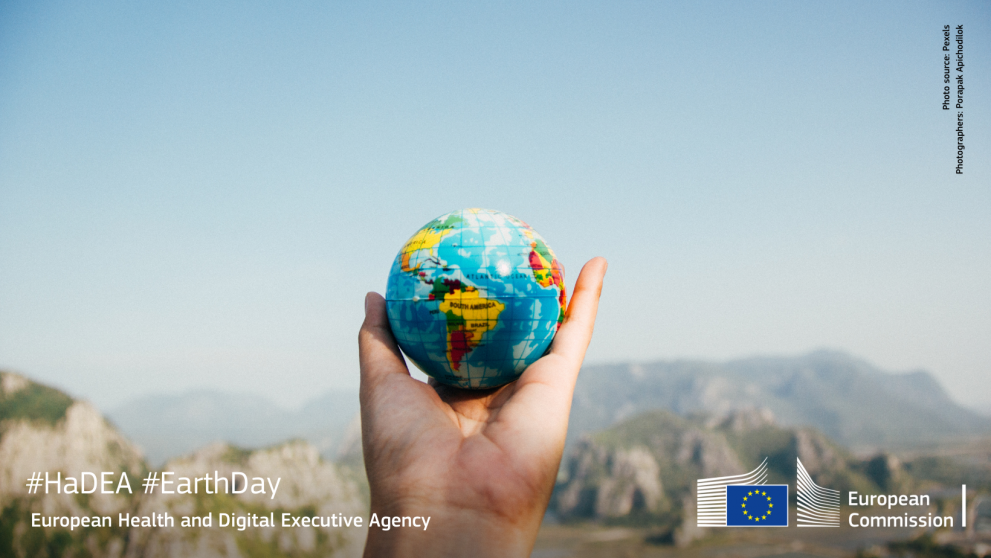
World Earth Day is celebrated every year on 22 April, to demonstrate support for environmental protection.
While addressing this theme, the industry sector is currently facing multiple challenges:
- scale-up promising raw materials production technologies;
- demonstrate that raw materials can be produced in an innovative and sustainable way;
- make sure that research and innovation access the market;
- strengthen the competitiveness of the European raw materials’ industries;
- meet ambitious 2030 energy and climate targets;
- gain the trust of the EU citizens in the raw materials sector.
Digging into raw materials: Rare Earth Elements
Rare Earth Elements (REE) are a group of 17 specialty metals used in various high-tech applications and products such as smartphones, wind turbines, MRIs, hard disk drives, LEDs, electric motors and more. The EU is a global manufacturing leader for products like automotive traction motors and wind turbines but is highly dependent on raw materials that are crucial for a strong European industrial base, an essential building block of the EU's growth and competitiveness. Securing the sustainable access to raw materials is of high importance.
The Projects
Discover how some of the Horizon 2020 projects managed by HaDEA contribute to a more sustainable rare earth elements production:
- SecREEts: the main goal of the project is to establish a stable and secure supply of critical rare earth elements based on a sustainable extraction from European apatite sources used in fertiliser production. Pilot processes will be developed for the innovative extraction, separation and transformation of rare earth elements. SecREEts pilots will focus on Praseodymium (Pr), Neodymium (Nd) and Dysprosium (Dy), metals used in permanent magnets and extremely critical for the European economy. These REEs will be supplied to application areas like automotive (electric vehicles), industrial motors (advanced manufacturing) and, potentially, clean energies (wind turbines). Industrial implementation of the pilots developed in SecREEts will lead to an annual supply of at least 3000 tons of REEs to European industries in 2023, for an estimated value of € 75 million. The technology developed in this project will be able to cover approximately 10% of Europe's need for rare earth elements.
- SUSMAGPRO: SUSMAGPRO stands for ‘Sustainable Recovery, Reprocessing and Reuse of Rare-Earth Magnets in a European Circular Economy’. The project’s goals are to develop a recycling supply chain for rare earth magnets in Europe and to demonstrate the effective reuse of recycled rare earth materials within several industries. More specifically, the project aims at creating a pilot supply chain from recycled neodymium magnets in Europe. With the support of a multinational team and new technologies developed under the FP7 Remanence project and H2020 REProMag project, the product will be tested. These novel hydrogen technologies will be used in the separation and purification process. Remanufacturing will then take place to achieve different forms of magnets and the potential of the new method will be evaluated.
- BIORECOVER: The main objective of the project is to research and develop a new sustainable and safe biotechnological process for the selective extraction of a wide range of Critical Raw Materials (CRMs) from relevant unexploited secondary and primary sources:
- Rare earth elements from Bauxite Residue from Greece;
- Magnesium from Mg wastes of low grade minerals and calcination by-products- from Spain;
- Platinum Group Metals (PGM) from flotation tailings from South Africa & PGM slags, dusts and press cake from United Kingdom.
Background information
Horizon 2020 (H2020) was the EU’s multiannual funding programme between 2014 and 2020. H2020 provided Research and Innovation (R&I) funding for multi-national collaboration projects as well as for individual researchers and SMEs via special funding instruments. Horizon 2020 has been replaced by the Horizon Europe programme, which will run until 2027.
Relevant links
Details
- Publication date
- 22 April 2022
- Author
- European Health and Digital Executive Agency
- Programme Sector
- Industry
- Programme
- Horizon Europe
- Horizon Europe Cluster 4: Industry
- Tags
- EUFunded
- Industrial research
- Innovation
- Raw material
